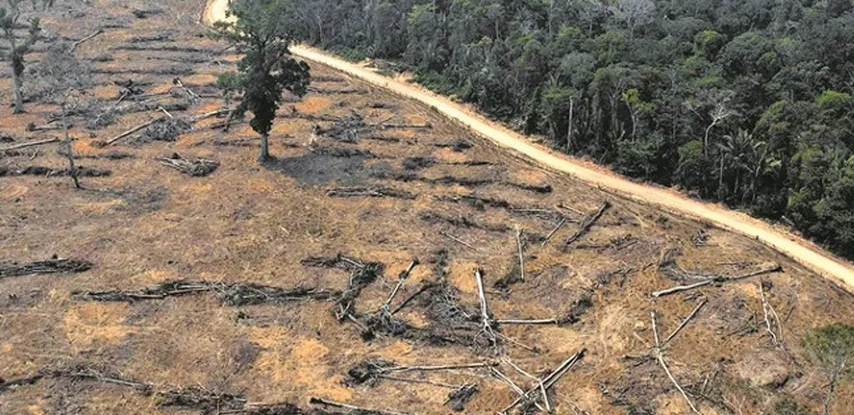
Brazil, long from being a champion of environmental preservation, has already destroyed 71.3% of the areas of native tropical forests, according to data from the National Institute of Spatial Research (Inpe), due to the diverse cycles of agricultural exploitation that have occurred since the European invasion.
For illustrative purposes, sugarcane and coffee have had a significant role in the destruction of flora and fauna in the Brazilian Northeast. The exploitation of cana-de-açúcar, in particular, led to deforestation and loss of habitats, directly impacting the biodiversity of the region in a period of time of almost 3 centuries.
And this profile has not changed!
The various Brazilian governments with their personal variations (directed or left institutional), have not had any serious commitment to change their agricultural and environmental policies, although we cry to the four winds they are engaged in environmental programs and concerned about the climate changes that are devastating us.
Wow!!!
At the same time that we are looking for some protagonism in climate and environmental issues, it shows contradictory signs of betting on the exploitation of more sources of dirty energy, such as petroleum and thermoelectrics, maintaining the policy of using poison in our crops and loosening the rules for the authorization of extremely destructive enterprises such as mining and high-standard constructions in areas of environmental preservation, in addition to maintaining the policy of extermination of the original peoples, at a time when they do nothing to stop the advances of agricultural frontiers
Recently, in October 2025, an exploratory survey of the Foz do Amazonas by Petrobras was authorized by Ibama (an organization that should protect the Brazilian environment). And Brazil maintains a subsidy for the use of coal for thermal power plants, recently extended until 2040, also in October 2025!
Don’t be fooled, Brazil has always walked like so many other countries that destroyed its environment, while the greed and greed for more wealth on the part of two dominant groups (business in general, bankers, agro-negociants among the principals) maintains the pressure to maintain operations harmful to the environment. It does not matter that this causes a negative impact, tento lucros e mais lucros, o planeta que se dane!
The difference is the continental size that makes the perception that we still have a lot of preserved area, but it’s illusory, because the greed and ambition of explorer groups of all kinds will not stop when the land is not dry in an irreversible way, as they did with large areas in the north of Brazil.
Although vast areas of Brazil remain preserved, the areas already deforested are so large that, when compared to smaller countries, the magnitude of the loss is alarming. For example, Brazil lost an area of natural vegetation equivalent to the size of Bolivia (more than 111 million hectares) in just 40 years. In just 3 years, an area larger than Switzerland was devastated in the Amazon. These numbers, expressed in areas comparable to entire countries, demonstrate a colossal scale of destruction, which can be underestimated when seen only in terms of a percentage of a territory as large as Brazil.
With a vast territorial extension of the country, it can create a false perception that natural resources are inexhaustible and that there will always be more areas to be explored or preserved. This can lead to complacency in relation to dematting and degradation rates.
Environmental destruction occurs in different biomes (Amazônia, Cerrado, Caatinga, etc.) and in locations far from large urban centers. The physical distance and the dispersion two problems podem fazer com que the urban population and the media do not have the real dimension of what is happening in remote regions.
Frequently, the dematment data are presented as percentages of the total area of the biome or of the country, which may seem small in a colossal territory. However, in absolute terms (square kilometers), the destroyed area is enormous, and it has significant global impacts, such as the emission of greenhouse gases and the loss of biodiversity.
We reinforce that the dimension of Brazil masks the fact that the destruction, although located in certain regions, reaches proportions that, in any other country, would be considered a national catastrophe of unquestionable proportions.
Brazil: king of environmental destruction!





